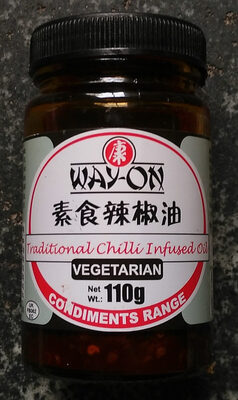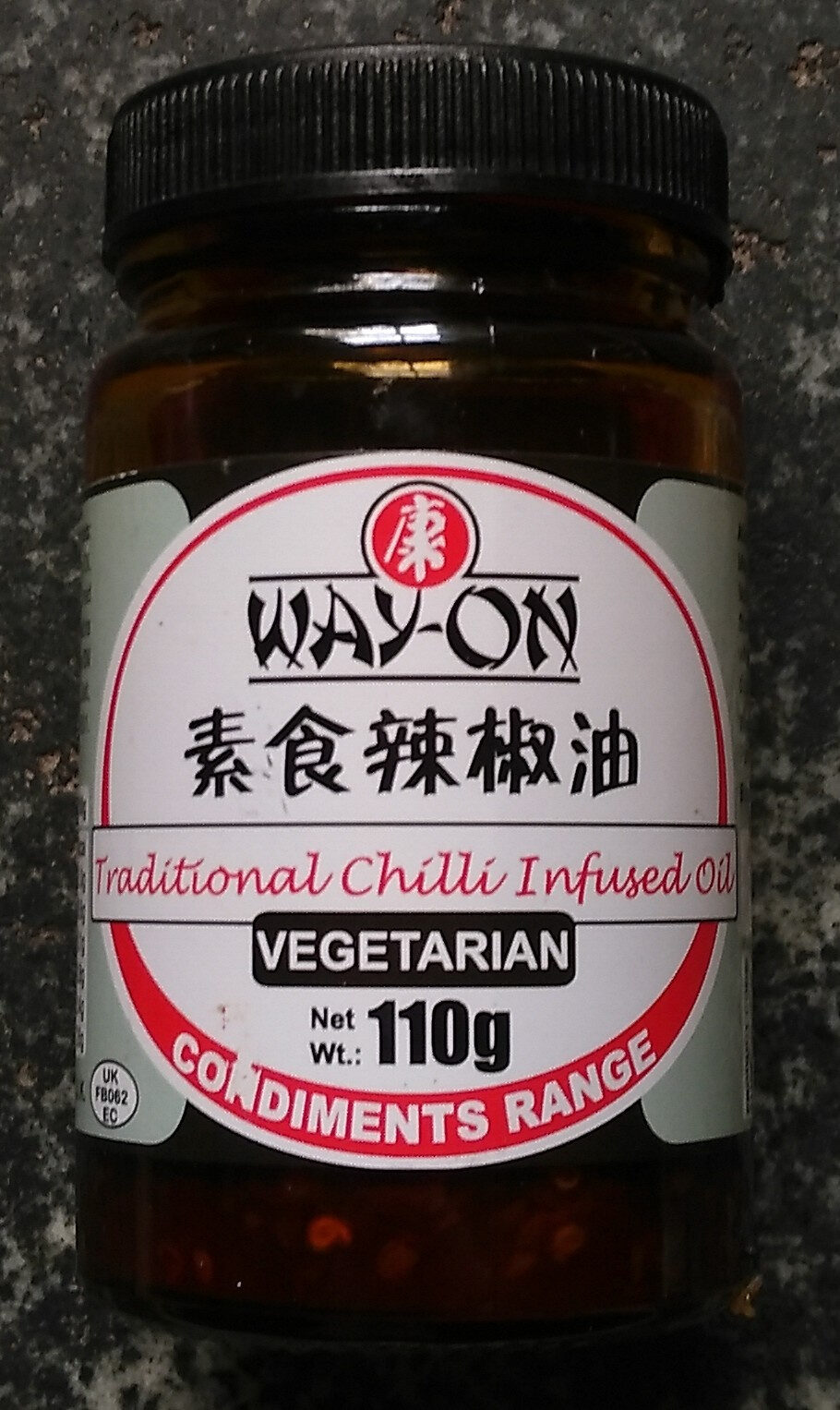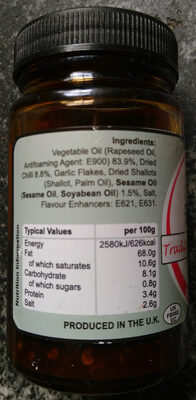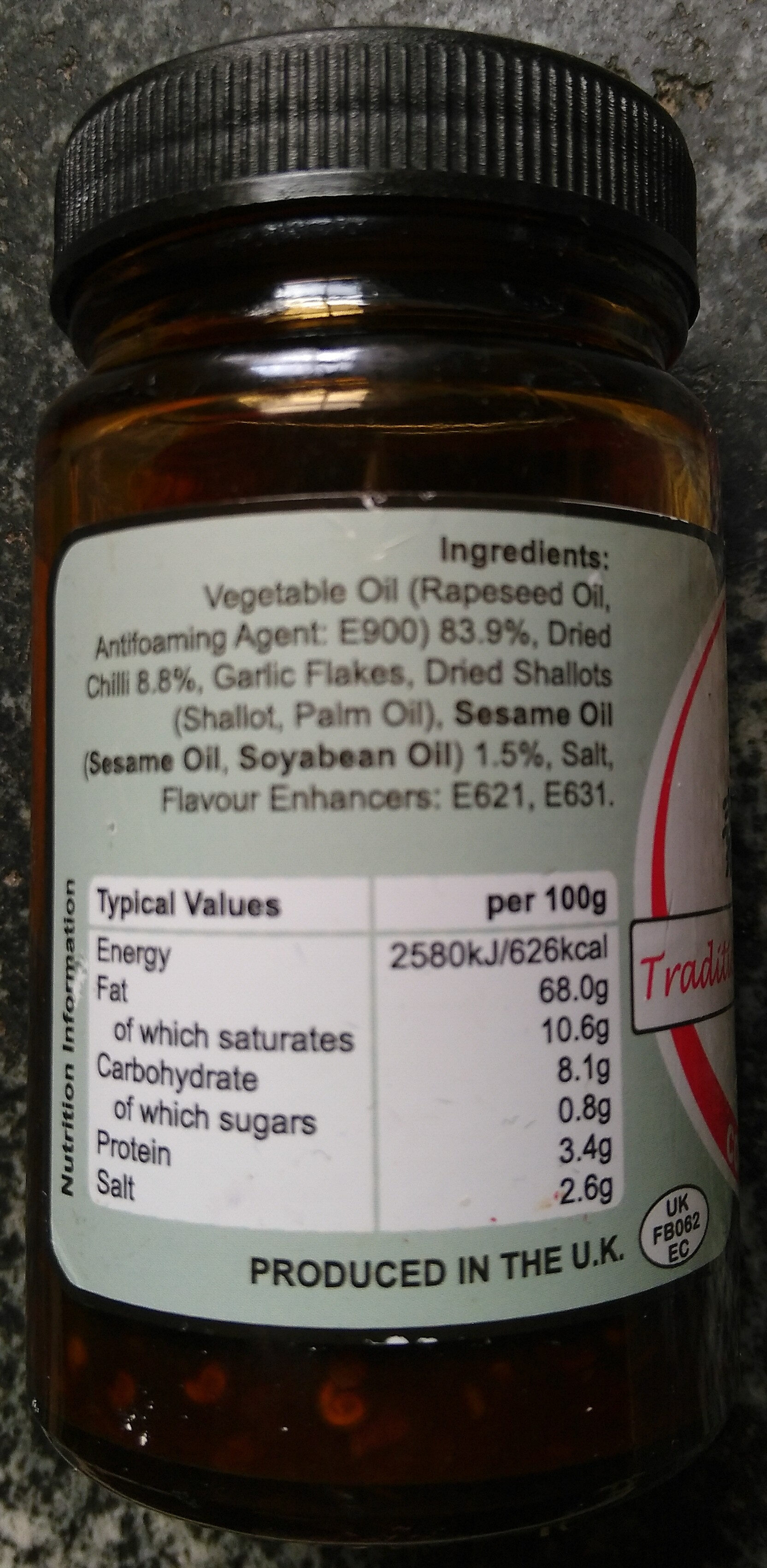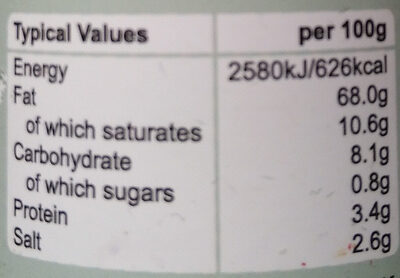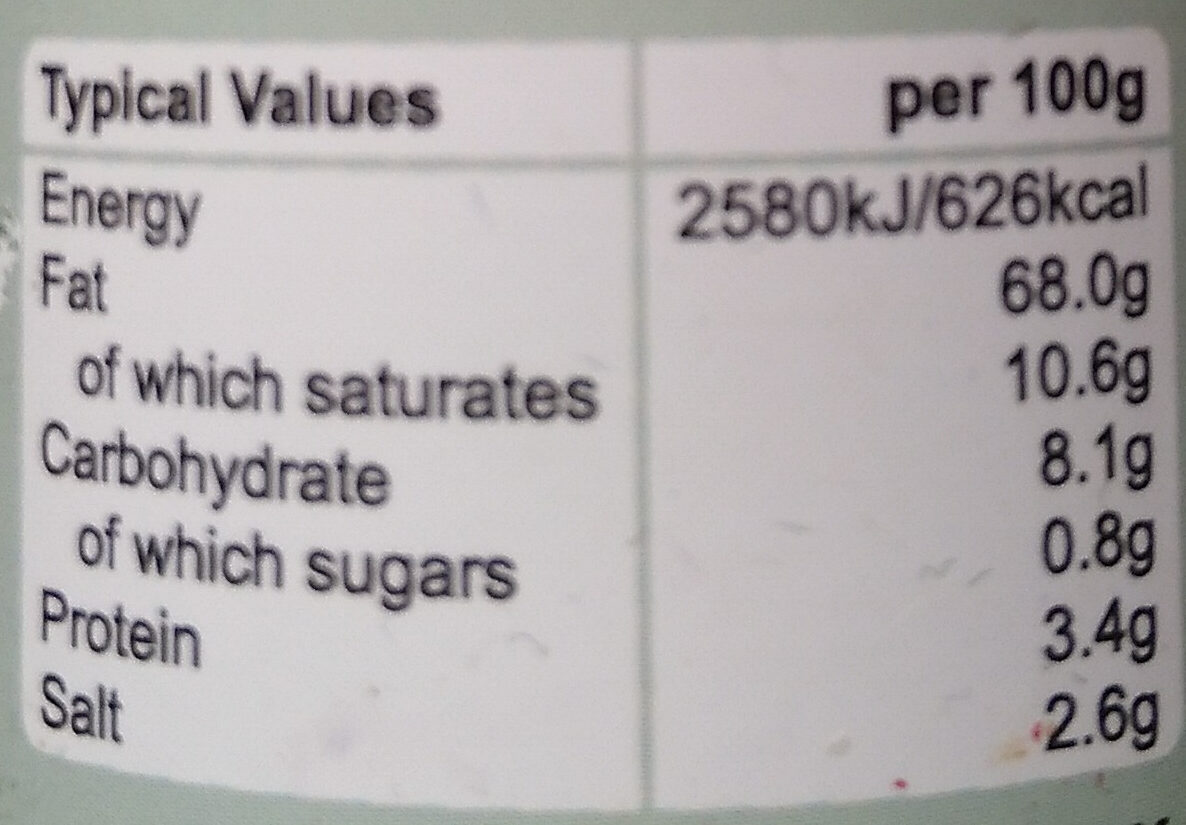Way-on Traditional Chilli Infused Oil - 110 g
This product page is not complete. You can help to complete it by editing it and adding more data from the photos we have, or by taking more photos using the app for Android or iPhone/iPad. Thank you!
×
Barcode: 5025190411059 (EAN / EAN-13)
Quantity: 110 g
Brands: Way-on
Categories: Condiments, Groceries
Labels, certifications, awards: Vegetarian
Manufacturing or processing places: United Kingdom
Traceability code: UK FB062 EC
Countries where sold: United Kingdom
Matching with your preferences
Environment
Packaging
Transportation
Threatened species
Report a problem
Data sources
Product added on by vaporous
Last edit of product page on by vaporous.
Product page also edited by openfoodfacts-contributors.
If the data is incomplete or incorrect, you can complete or correct it by editing this page.
